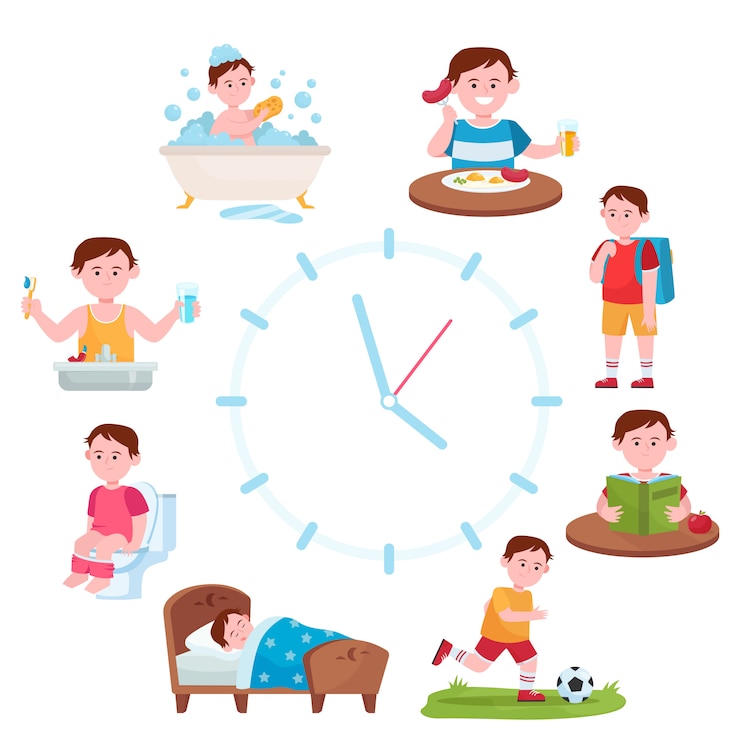
**Improve Your Child’s Emotional Regulation Skills: An Essential Guide**
### What You’ll Learn:
Understand the common mistakes parents make while teaching emotional regulation to their children and discover effective strategies that actually work.
### Introduction
As parents, when it’s time to teach our children how to handle their emotions in tough situations, many of us make the same significant mistake. Picture an ordinary day: your child’s stress levels are rising while waiting in a doctor’s office, when a sibling takes their toy, or after being denied yet another popsicle. As their frustration builds, expressed through loud voices or fast movements, it often culminates in a dramatic outburst—hitting a sibling or throwing a toy.
Our immediate reaction might be concern and thinking, “He must learn that’s not okay!” resulting in a timeout, consequence, or stern talk. However, this response usually misses the point. We all aim to equip our children with the tools to navigate intense emotions and situations, essential for their daily lives. Yet, there’s a crucial aspect of anger management and self-regulation we often overlook.
**Understanding Self-Regulation**
Self-regulation means managing emotions and behavior to suit a situation. This set of skills helps a child control their responses, working toward goals like staying calm until a birthday cake is served or resisting the urge to hit during playtime. Research shows that self-regulation is crucial for a child’s social, emotional, and academic success and development.
Many of the children we ask to “get control of yourself” aren’t developmentally ready to manage their emotions independently. Their brain areas responsible for impulse control and self-regulation are still developing, and their sensory systems are immature, too. Often, young children cannot calm down by themselves.
**A More Effective Approach: Co-Regulation**
To better build your child’s emotional regulation skills, consider forming a supportive partnership with them, known as co-regulation. Although it sounds simple, it can be challenging. When your child is having an emotional meltdown, your instinct might scream, “I need to get out of here!” leading you to send them away. But when your child struggles, what they truly need is your calm, steady presence, which fills the gap left by their developmental immaturity.
By adopting this supportive mindset, and collaborating with your child, you can follow these six steps to enhance their emotional regulation skills over time:
### Steps to Improve Your Child’s Emotional Regulation
**Step 1: Model Positive Emotional Regulation**
Remember, your child observes you more than they listen. How you handle everyday stressors offers the best lessons and examples for your emotionally intense child.
**Step 2: Be a Stress Detective Together**
Help your child identify what stresses them out. This could be lack of sleep, hunger, or sensitivity to loud noises. Understanding triggers is key to preparing for and managing reactions.
**Step 3: Empower with Knowledge**
Teach your child about their brain and emotions using tools like Dr. Dan Siegel’s hand model. Familiarize them with how their emotional brain takes over when stressed, helping them understand what’s happening inside them.
**Step 4: Teach Emotional Intelligence**
Emotional intelligence begins with recognizing, understanding, and managing emotions. Ensure your child has a broad vocabulary for emotions—identifying them is the first step in addressing them.
**Step 5: Explore Coping Strategies**
Once emotions are identified, find productive ways to process them. Explore what calms your child, keeping in mind that trial and error is a natural part.
**Step 6: Practice Mindfulness and Breathing**
Simple routines, consistent meal times, and regular bedtimes can greatly aid emotional regulation. Teach the power of breathing exercises to calm the nervous system, and use mindfulness to build emotional control skills.
Finally, remember that although it may not seem like it in the middle of a meltdown, switching your role from an emotional referee to a guide will eventually show its benefits. With dedication and development, your child will begin integrating these self-regulation skills into daily life challenges.
There’s hope for every child to improve their emotional regulation, and with understanding and patience, each can be guided toward a fulfilling life. **-Dr. Stuart Shanker**
—
### Additional Resources
If you’re looking for more ways to support your child in building emotional regulation skills, explore the ‘Calm Kids Set’. This package provides effective tools to foster your child’s lifelong well-being through emotional intelligence.
**Sign Up for Our Newsletter**
Join 30,000 parents in receiving the Parents with Confidence weekly email. Gain access to a free 5-day email parenting course where you’ll learn:
– The best ways to protect your child’s self-esteem
– How to encourage cooperation effectively
– The most valuable future skill for your child
– Discipline techniques that avoid emotional harm
Stay informed while building powerful parenting skills for you and your child.



